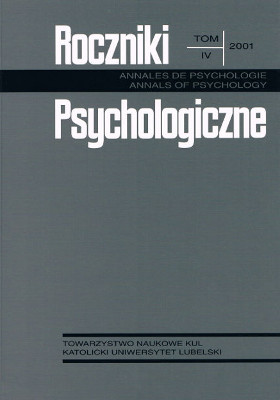Contemporary Tendencies in Research on Giftedness
Abstract
The article examines contemporary tendencies in the research of giftedness in both American and European psychology. The theory of Successful Intelligence by Robert J. Sternberg, which is supported by many, is being reviewed carefully, and the specific characteristics of analytical, creative and practical intelligence are presented. Some of the thesis needs to be verified empirically. The theory, however, is useful and might be beneficial not only in the basic study, but also in practical psychology. Primarily, the article describes characteristics of emotional and social functions of gifted students. The importance of both emotional and social development as well as purpose of experiments that take into consideration both aspects are emphasized. This article tries to define the most important task are being undertaken in the field of psychology of giftedness.
References
Brody, N. (2000). History of theories and measurements of intelligence. [W:] R. J. Sternberg (red.), Handbook of intelligence (s. 16-33). New York: Cambridge University Press.
Clark, B. (1992). Growing up gifted. New York: Merrill.
Grigorenko, E. L., Sternberg, R. J. (2001). Analytical, creative, and practical intelligence as predictors of self-reported adaptive functioning: A case study in Russia. Intelligence, 28, 1-17.
Grigorenko, E. L., Gil, G., Jarvin, L., Sternberg, R. J. (2000). Toward a validation of aspects of the theory of successful intelligence (nie opublikowany mps).
Grigorenko, E. L., Sternberg, R. J., Jarvin, L. (w druku). School-based tests of the triarchic theory of intelligence: three settings, three samples, three syllabi. Contemporary Educational Psychology.
Manturzewska, M. (1974). Psychologiczne wyznaczniki powodzenia w studiach muzycznych. Warszawa: COPSA.
Monks, F. J. (1987). Beratung und forderung besonders begabter Schuler. Psychologie in Erhiehung und Unterricht, 34, 214-222.
Renzulli, J. (1986). The three-ring conception of giftedness: a developmental model for creative productivity. W: R. J. Sternberg, J. E. Davidson (red.), Conceptions of giftedness (s. 53-93). Cambridge–London: Cambridge University Press.
Sękowski, A. (1989). Osobowość a osiągnięcia artystyczne uczniów szkół muzycznych. Warszawa–Kraków–Wrocław: Ossolineum.
Sękowski, A. (1998). Różnice indywidualne a osiągnięcia uczniów zdolnych. Przegląd Psychologiczny, 1-2, 105-120.
Sękowski, A. (2000). Osiągnięcia uczniów zdolnych. Lublin: Towarzystwo Naukowe KUL.
Sternberg, R. J. (1997). Successful intelligence. New York: Plume.
Sternberg, J. R. (2000). Wisdom as a form of giftedness. Gifted Child Quarterly, 44, 4, 252-260.
Sternberg, R. J., Davidson, J. E. (1986). Conceptions of giftedness. London–New York, NY: Cambridge University Press.
Sternberg, R. J., Grigorenko, E. L. (2000). Teaching for successful intelligence. Arlington Heights, IL: Skylight Training and Publishing Inc.
Sternberg, R. J., Grigorenko, E. L. (red.) (2002). The general factor of intelligence: Fact or fiction. Mahwah, NJ: Lawrence Erlbaum Associates.
Sternberg, R. J., Grigorenko, E. L., Ferrari, M., Clinkenbeard, P. (1999). A triarchic analysis of an aptitude-treatment interaction. European Journal of Psychological Assessment, 15, 1-11.
Urban, K. K. (1990). Recent trends in creativity research and theory in Western Europe. European Journal for High Ability, 1, 99-113.
Urban, K. K., Sękowski, A. (1993). Programs and practices for identifying and nurturing giftedness and talent in Europe. W: K. A. Heller, F. J. Monks, H. A. Passow (red.), International handbook of research and development of giftedness and talent (s. 779-797). Oxford: Pergamon Press.
Webb, J. T. (1993). Nurturing social-emotional development of gifted children. W: K. A. Heller, F. J. Monks, A. H. Passow (red.), International handbook of research and development of giftedness and talent (s. 525-539). Oxford-New York: Pergamon Press.
Copyright (c) 2001 Roczniki Psychologiczne

This work is licensed under a Creative Commons Attribution-NonCommercial-NoDerivatives 4.0 International License.


